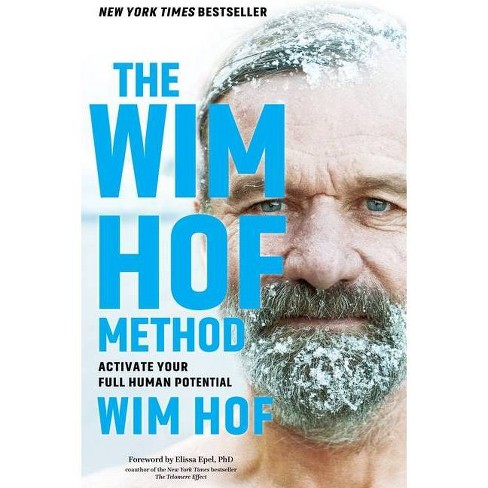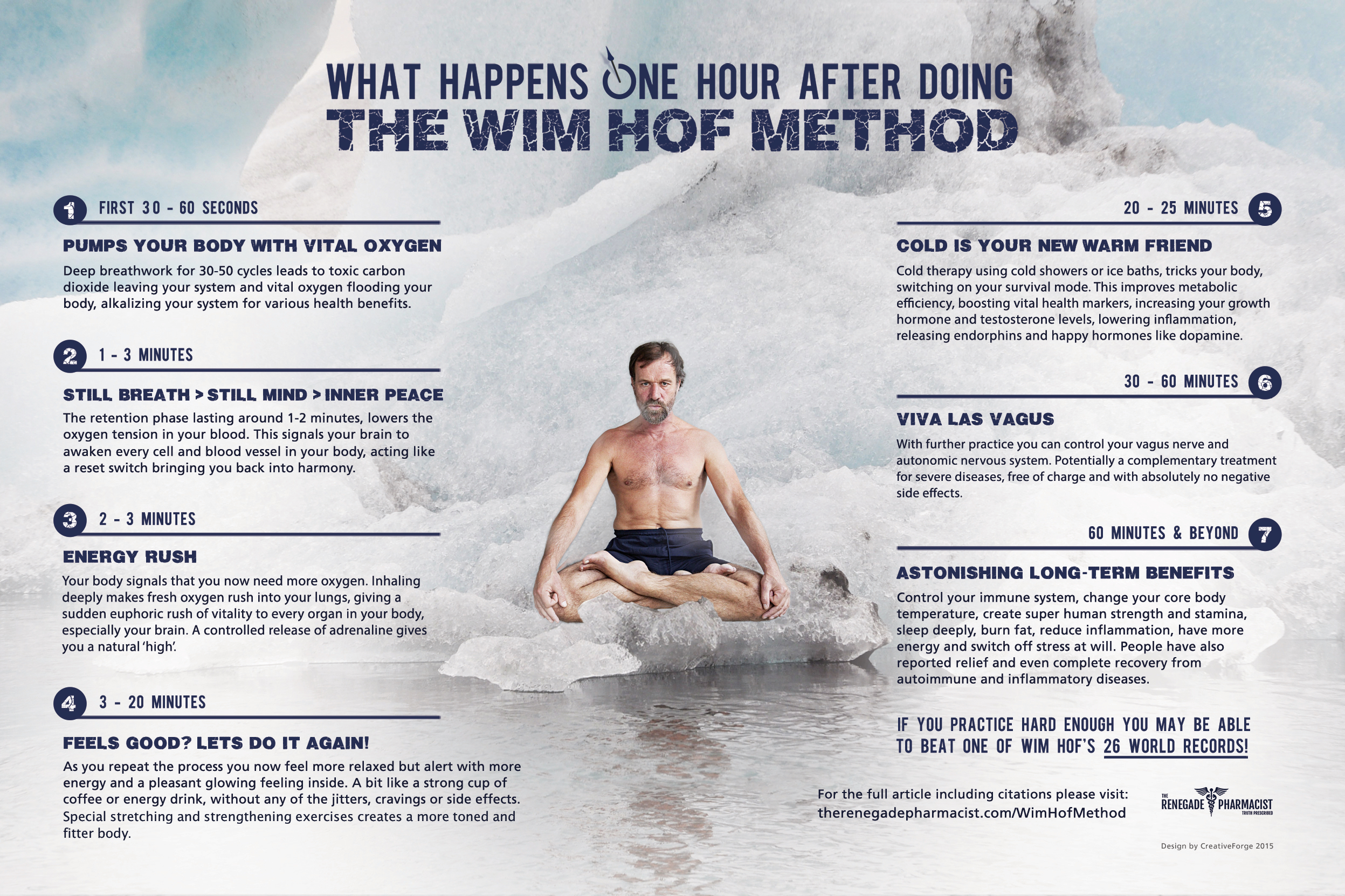

Recently, a proof-of-principle randomized controlled trial (RCT) in 12 healthy male volunteers compared to 12 non-trained volunteers examined the effects of this training program in others, showing remarkably similar effects. Ī case study of a Dutch individual Wim Hof, who has developed a training program consisting of meditation, breathing techniques, and exposure to cold to voluntarily influence the physiological stress response, revealed that this individual appeared to strongly activate the sympathetic nervous system and attenuate the immune response in reaction to controlled experimentally induced inflammation (using the experimental human endotoxemia model). Thus, outcome expectancies may strengthen or mimic the effects of regular long-term therapies and might be used to find innovative ways to optimize the individual treatment response in conditions requiring long-term pharmacological treatment. However, particular promising effects have been found for the combination of both (conditioning and verbal suggestions) outcome expectancy mechanisms. In addition, outcome expectancies based on verbal suggestions on the effectiveness of a treatment have shown important in predicting treatment outcomes. For example, outcome expectancies based on conditioning, such as partial reinforcement of treatment dosages, could lead to a significant reduction in active medication and reported side effects in various conditions, without negatively impacting disease activity and symptom reporting.

In particular, the broad literature on placebo effects has been shown that expectancies about health can induce immune responses that may directly and positively influence health and treatment outcomes, whereas negative expectancies about a treatment can cause an inert substance to create harmful effects or induce unwanted side effects. Psychological factors are supposed to play a major role for the treatment outcome of a broad variety of immune-mediated conditions, such as rheumatoid arthritis. If replicated, these findings may be used for predicting training responses and potentiate their effects by means of optimism-inducing interventions in patients with immune-mediated rheumatic conditions. This proof-of-principle study provides first indications for potential innovative treatments to change immune-modulating responses by means of psychological mechanisms. Indications were found that especially the generalized outcome expectancy optimism is a potential determinant of the autonomic (epinephrine: rho = 0.76, p < .01) and immune response (interleukin-10: rho = 0.60, p < .05) to induced inflammation after training, whereas more specific expectations with regard to the effects of the training could be especially relevant for the clinical symptom report (flu-like symptoms: rho = −0.71, p < .01). Within this project, a number of variables were included to assess the role of generalized (optimism, neuroticism) and specific outcome expectancies (related to the effects of the training on health) on the response to endotoxin administration after training. (PNAS 111:7379–7384, 2014) on the ability to voluntarily influence the physiological stress response in healthy men after a training program consisting of meditation, breathing techniques, and exposure to cold, which found highly promising results on the clinical, autonomic, and immune response to experimentally induced inflammation (using the experimental human endotoxemia model).

This study adds to a recently published study of Kox et al.

Expectancies play a major role for the treatment outcome of a broad variety of immune-mediated conditions and may strengthen or mimic the effects of regular long-term therapies.


 0 kommentar(er)
0 kommentar(er)
